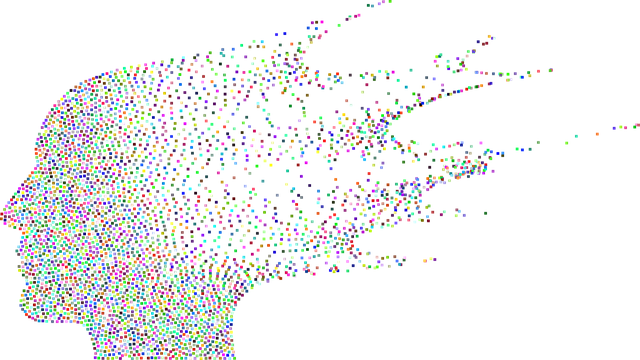Mental health issues among young adult males are a growing concern, highlighting the need for comprehensive risk assessments and tailored interventions. This demographic faces unique challenges like societal pressure to conform to gender roles, isolation, peer pressure, academic/career stress, and traumatic life events. Common disorders include depression, anxiety, and substance abuse. Modern therapy approaches, such as Mind Over Matter principles, build resilience. Public awareness campaigns normalize mental health discussions, reduce stigma, and encourage early intervention. Social skills training improves communication and support networks. Culturally sensitive techniques and Emotional Well-being Promotion enhance trust and engagement. A comprehensive risk assessment includes understanding developmental milestones, past traumas, and current stressors. Burnout prevention emphasizes self-care and supervision. Integrating coping skills, mindfulness, stress management, and cognitive reframing empowers clients to manage their mental health effectively. Long-term client care is crucial for building resilience and fostering emotional regulation.
In the realm of mental health, understanding and mitigating risks among young adult males in therapy is paramount. This article delves into the unique challenges faced by professionals when addressing mental health risks specific to this demographic. From exploring the intricacies of therapy for young adults to delineating essential risk assessment components, we provide strategies for effective risk management and long-term support. By embracing comprehensive practices, mental health professionals can foster resilient practice models tailored to the needs of young adult male clients, ensuring better outcomes. Key topics covered include therapy for young adults’ mens issues, risk mitigation, and building supportive frameworks.
- Understanding Mental Health Risks in Young Adult Males
- The Unique Challenges of Therapy for This Demographic
- Essential Components of a Comprehensive Risk Assessment
- Strategies to Mitigate and Manage Identified Risks
- Building Resilient Practice Models for Long-Term Support
Understanding Mental Health Risks in Young Adult Males

Mental health issues among young adult males have become a growing concern, highlighting the need for comprehensive risk assessment and tailored interventions. This demographic often faces unique challenges, such as societal expectations to conform to traditional gender roles, which can hinder their willingness to seek help. Understanding these risks involves recognizing the prevalence of mental health disorders like depression, anxiety, and substance abuse, which are prevalent in this age group. Many young adult males may struggle with unspoken emotional struggles, leading to increased risk factors including isolation, peer pressure, academic or career-related stress, and traumatic life events.
Therapy for Young Adults Men’s Issues has evolved to address these challenges, incorporating approaches like Mind Over Matter principles that focus on building resilience and coping strategies. Public Awareness Campaigns Development plays a crucial role in normalizing mental health discussions, reducing stigma, and encouraging early intervention. Additionally, Social Skills Training can help young men navigate interpersonal relationships, fostering better communication and support networks, which are vital for maintaining good mental health.
The Unique Challenges of Therapy for This Demographic

Therapy for young adults, particularly focusing on men’s issues, presents unique challenges due to the distinct developmental stage and often complex social dynamics at play. Many young adults are navigating their identity, career paths, and interpersonal relationships while also dealing with emotional struggles, which can make traditional therapy approaches less effective without tailored strategies. For instance, Social Skills Training has been proven beneficial in enhancing communication and relationship-building abilities, addressing a common challenge faced by this demographic.
Cultural sensitivity in mental healthcare practice is another critical aspect. Young adults from diverse backgrounds may have unique perspectives on emotional expression and coping mechanisms, influenced by their cultural identities. Incorporating Emotional Well-being Promotion Techniques that are culturally responsive ensures that therapy resonates with clients, fostering a deeper sense of trust and engagement. Understanding and adapting to these nuances can significantly improve outcomes in mental health treatment for this vulnerable population.
Essential Components of a Comprehensive Risk Assessment

A comprehensive risk assessment for mental health professionals involves several crucial components tailored to address unique challenges faced by therapists specializing in young adult men’s issues. Firstly, therapy for young adults requires a deep understanding of developmental milestones and emerging adulthood transitions. Assessing clients’ coping mechanisms, past traumatic experiences, and current stressors is vital to identify potential triggers that may impact their emotional well-being. Incorporating techniques from the mental wellness podcast series production can aid in gathering comprehensive client histories and fostering open communication.
Additionally, professionals must consider burnout prevention as a key risk factor. The demanding nature of working with young adults dealing with various men’s issues can lead to professional exhaustion. Implementing emotional well-being promotion techniques such as self-care strategies, supervision, and peer support networks is essential to mitigate these risks. Regularly reviewing clients’ progress and adapting treatment plans accordingly ensures a dynamic process that addresses evolving needs, enhancing the overall effectiveness of therapy.
Strategies to Mitigate and Manage Identified Risks

Identified risks must be addressed proactively to ensure a safe and supportive environment for both mental health professionals and their clients, especially when catering to young adults with mens issues. Strategies to mitigate and manage these risks include integrating coping skills development into therapy sessions. By equipping clients with tools such as mindfulness techniques, stress management strategies, and healthy communication methods, they gain the inner strength development needed to navigate challenges independently.
Promoting positive thinking is another effective approach. Encouraging a growth mindset and fostering resilience helps young adults build mental fortitude. This can be achieved through cognitive reframing exercises, affirmations, and exposure therapy, which not only enhance coping abilities but also empower individuals to embrace life’s complexities with renewed optimism.
Building Resilient Practice Models for Long-Term Support

In the context of mental health practice, building resilient models that support long-term client care is paramount, especially when catering to young adults and men’s specific issues. Therapy for Young Adults and Men often involves navigating complex emotional landscapes and personal challenges. By integrating Self-Awareness Exercises into their practice, therapists can foster a deeper understanding of both the client and themselves, enhancing Emotional Regulation skills. This approach not only strengthens the therapeutic bond but also empowers clients to manage their mental health effectively over time.
Resilience Building is a cornerstone of such models, encouraging professionals to anticipate and overcome potential challenges. By prioritizing self-care and emotional resilience, therapists can sustain their own well-being while providing consistent support to their clients. This holistic approach ensures that the therapy process remains dynamic, adaptable, and ultimately, more successful in addressing the unique needs of young adults and men facing various mental health concerns.
Mental health professionals play a vital role in addressing the unique challenges faced by young adult males. By understanding the specific risks and issues prevalent in this demographic, such as heightened rates of suicide, substance abuse, and mental health disorders, practitioners can tailor their therapy approaches accordingly. A comprehensive risk assessment, encompassing historical trauma, social isolation, and other relevant factors, is essential to effective treatment. Implementing strategies to mitigate identified risks, like structured support networks and evidence-based interventions, fosters a resilient practice model that promotes long-term well-being for young adult male clients and ensures they receive the specialized therapy for men’s issues they need.














